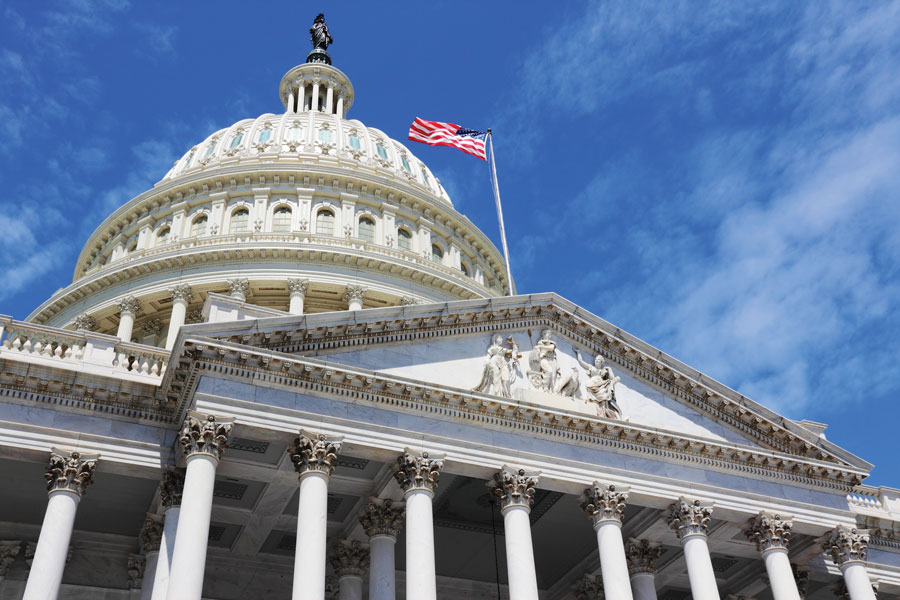

The House approved with strong bipartisan support Tuesday evening legislation designed to expand access to workplace retirement plans and increase retirement savings.
The Securing a Strong Retirement Act builds on the SECURE Act that Congress passed in 2019. Known as SECURE 2.0, the House passed the measure, 414-5, sending it to the Senate, where several retirement-savings bills are under consideration or about to be introduced.
The Senate could take up SECURE 2.0 or advance a similar bill and then work out differences between the House and Senate versions of the legislation in a conference committee. The Senate timeline is uncertain.
The 139-page SECURE 2.0 bill would raise the minimum age for required distributions from retirement plans to 75 from 72, expand automatic enrollment in 401(k) and 403 (b) plans and provide incentives for small businesses to establish retirement plans, according to a summary.
The measure contains dozens of provisions that were championed by Democrats and Republicans and garnered widespread support from interest groups ranging from AARP to the Insured Retirement Institute as well as from financial firms.
In a capital that is usually riven with partisan dissension, retirement-savings legislation consistently generates strong backing from both sides of the aisle. It gives lawmakers an opportunity for a win on an issue that can be a big concern for constituents -- not having enough money for their post-work years.
“This is transformative legislation,” said Rep. Richard Neal, D-Mass. and chairman of the House Ways and Means Committee, before the vote. “We are helping Americans prepare for a secure retirement.”
As an example, he cited a provision that allows workers to increase catch-up contributions to retirement plans, which Neal said would help them save for retirement while simultaneously working on other financial goals like paying for their children’s education.
“This bill goes a long way in addressing this country’s retirement crisis,” Neal said. “This legislation will become law, I hope, in the near future.”
The legislation particularly targets the millions of Americans whose employers -- often small businesses -- don’t offer a retirement program.
“We designed this bill to really focus on those who have not saved in the past and, unless we do something differently, are not going to be saving for the future,” said Rep. Kevin Brady, R-Tex. and ranking member of the Ways and Means Committee.
The bill’s many provisions provide plenty of touchstones for supporters to praise. Fidelity Investments highlighted one having to do with student debt.
“Securing a Strong Retirement Act takes an important step to help those individuals by allowing employers to make ‘matching’ contributions to a 401(k) plan while their employees make student loan repayments,” Kevin Barry, president of workplace investing at Fidelity, wrote in a March 25 letter to House leaders.
Supporters of the bill are now turning their attention to the Senate, where the chamber’s Health Education Labor and Pensions Committee earlier in the day held a hearing on retirement savings policy that previewed pending legislation. Both the Senate HELP and Finance committees will be considering legislation that could complement SECURE 2.0.
A strong lobbying push will continue to get a final bill through both chambers and enacted into law before the end of the congressional session in December.
“Today the U.S. House of Representatives passed one of IRI’s primary public policy objectives -- a retirement bill that further expands access to workplace retirement plans and protected lifetime income products,” IRI CEO Wayne Chopus said in a statement. “The bipartisan legislation will deliver measurable benefits to America’s workers and retirees who have anxiety over whether they will have sufficient retirement income that lasts throughout their golden years. Our efforts will now shift to the Senate to continue the positive momentum and get a bill to President Biden this year.”

Relationships are key to our business but advisors are often slow to engage in specific activities designed to foster them.

Whichever path you go down, act now while you're still in control.

Pro-bitcoin professionals, however, say the cryptocurrency has ushered in change.

“LPL has evolved significantly over the last decade and still wants to scale up,” says one industry executive.

Survey findings from the Nationwide Retirement Institute offers pearls of planning wisdom from 60- to 65-year-olds, as well as insights into concerns.
Streamline your outreach with Aidentified's AI-driven solutions
This season’s market volatility: Positioning for rate relief, income growth and the AI rebound
